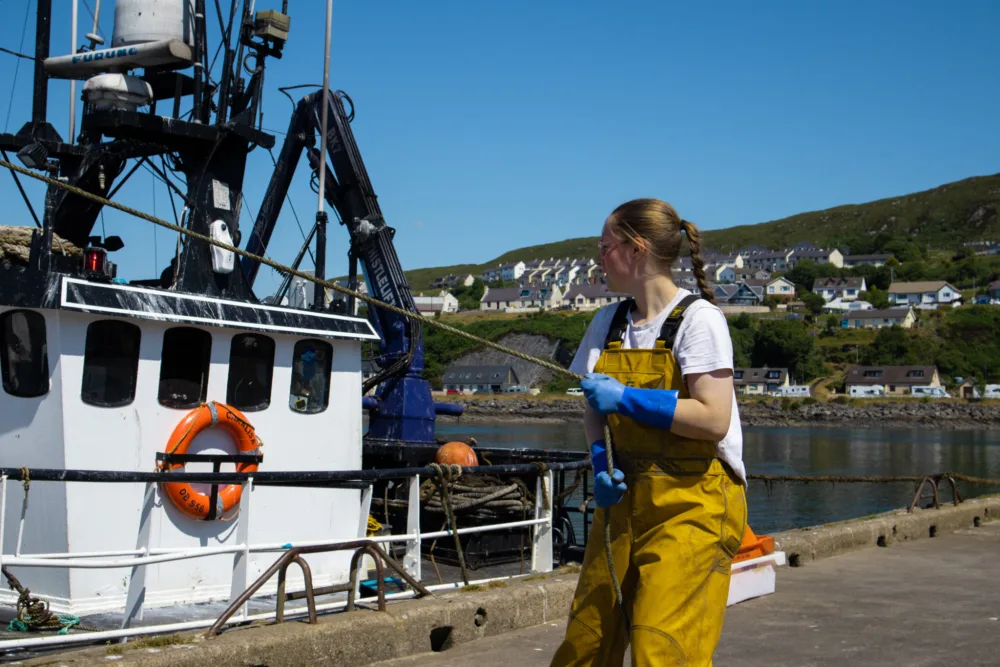Our Work

Fishing in a changing world
At the end of 2020, the UK left the European Union and the sector here is no longer regulated by the European Commission under the EU’s Common Fisheries Policy. As an independent coastal State, the UK now takes its own place at the table alongside the EU and other fishing nations in the North Sea and north-east Atlantic. Whilst the outcome of the ‘Brexit’ negotiations fell far short of what the industry had hoped for, the UK has gained its regulatory autonomy from the EU. There is now considerable scope for Scotland to determine the management arrangements that are most suitable for our circumstances. SFF wants to work with governments and other stakeholders to shape this future.
The COVID-19 pandemic also impacted many parts of the global economy and in 2020, we saw the demand for fish and shellfish in our key markets impacted by unpredictable and unprecedented market volatility. Whilst this global pandemic is now behind us, 2020 showed us what can happen almost overnight in a situation well beyond our control. Our role in advising on and shaping policy for this sector will always take this stark reality into consideration.

Globally, there is increasing focus and pressure on all nations to transition towards ‘net zero’ carbon emissions to prevent irreversible climate change.
The expected rapid growth in offshore renewables will lead to increased ‘spatial squeeze’ in the marine environment, especially when the cumulative impact of a range of spatial pressures is considered. This is expected to cause increasing challenges for the fishing industry, in terms of having the space in which to operate.
But fishing offers solutions to help Scotland to achieve net zero – producing low emission, renewable sources of healthy protein from fish and shellfish stocks, with lower emissions than are generated by other forms of protein production. SFF wants to help ensure that our well-managed, wild capture fisheries in Scotland are part of the solution to reaching net zero. These are only some of the changes that have impacted on our industry recently, and there are many others, including governments’ plans for enhanced marine protection.

Our members are committed to nature conservation where it strikes the right balance between conservation and sustainable harvesting, and SFF is committed to working with governments to achieve this balance, based on a science and evidence-led approach.

Much effort rightly goes into protecting fish and protecting the environment, but we must also ensure that fishermen are protected and are kept safe. That’s why SFF also invests resources into fishermen’s safety, welfare and training. We must never forget the risks that fishermen take in producing food for people’s plates at home and beyond. A strength of SFF is that the membership is diverse, both geographically and across all fleet sectors. This ensures that a wide range of perspectives is taken into account in developing policy and finding consensus, and that SFF can engage in well-informed discussion with both the Scottish and UK governments, and with A wide range of other bodies and organisations.

Discover the truth about Scotland's fishing industry in this new report.
For too long, the vital role of fishing in providing healthy, sustainable food has been drowned out by misinformation and misunderstandings. Despite facing existential threats from environmental campaigners and the proliferation of offshore windfarms, the Scottish fishing industry remains resilient and confident in its future.
With over 70% of Scotland's key commercial fish stocks being fished sustainably – the highest level in over 30 years – it shines a light on the industry's focus on sustainability and highlights its low carbon footprint. This report reveals how wild-caught Scottish seafood is a climate-friendly, nutritious food source that could help feed our nation and beyond.
Following on from the 'Pride in the Seas' exhibition which celebrated the stories of the people behind the fishing fleets; this must-read report aims to set the record straight on the realities facing one of Scotland's most important indigenous industries, and shows strong support for it from the Scottish public.
Read the report today, and join the call for policymakers to secure a sustainable future for this defining part of our national identity.





